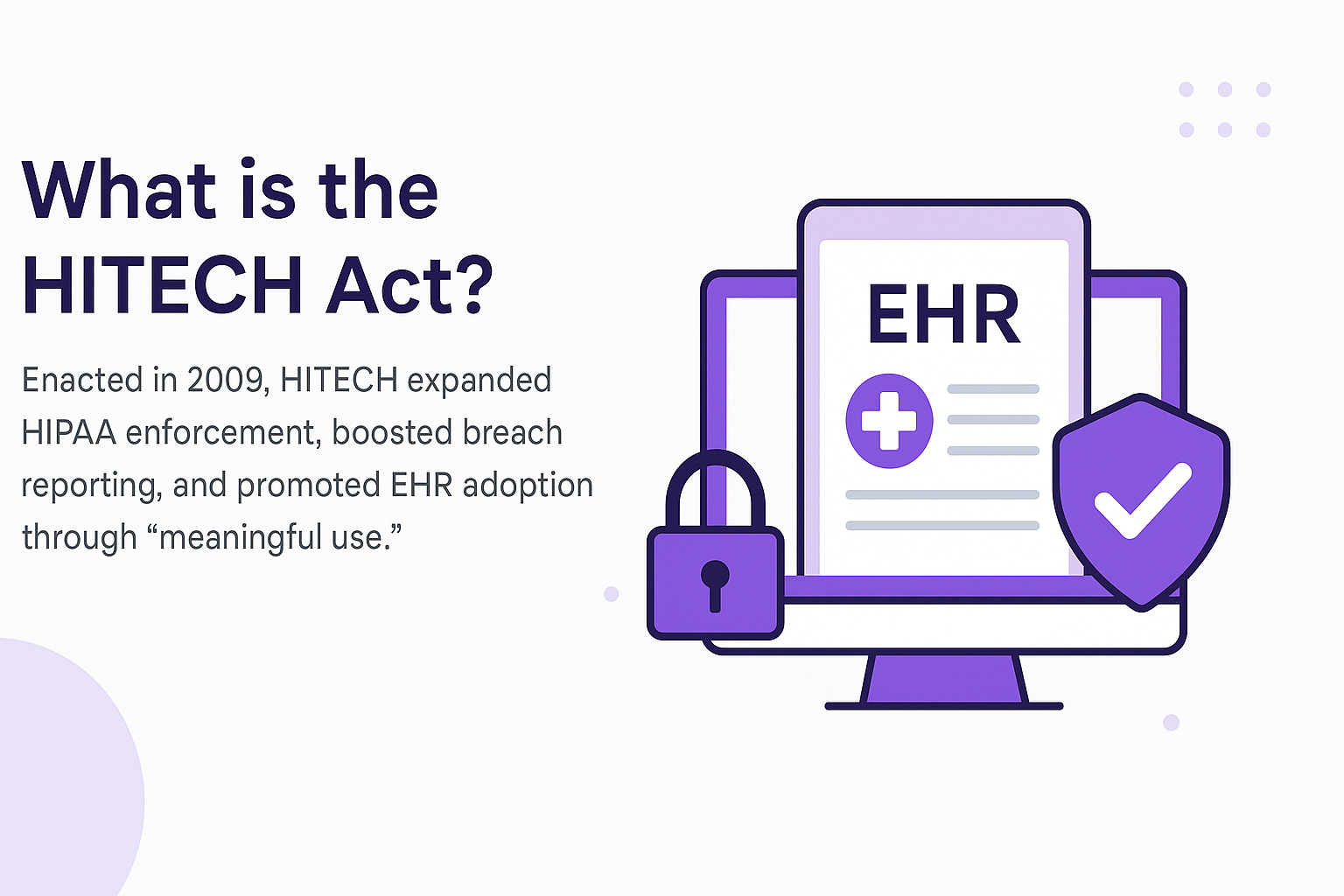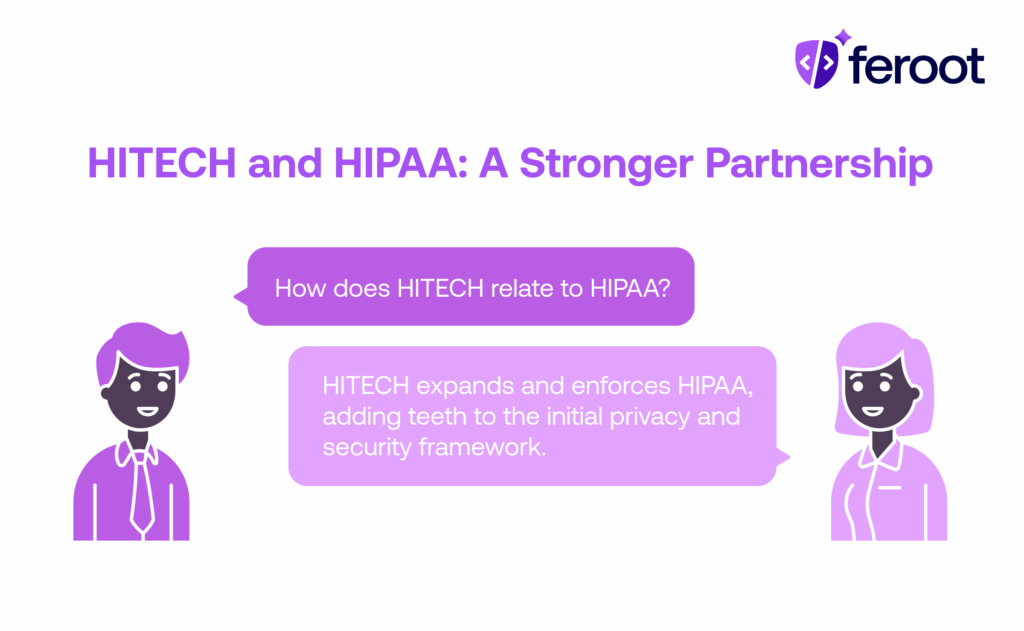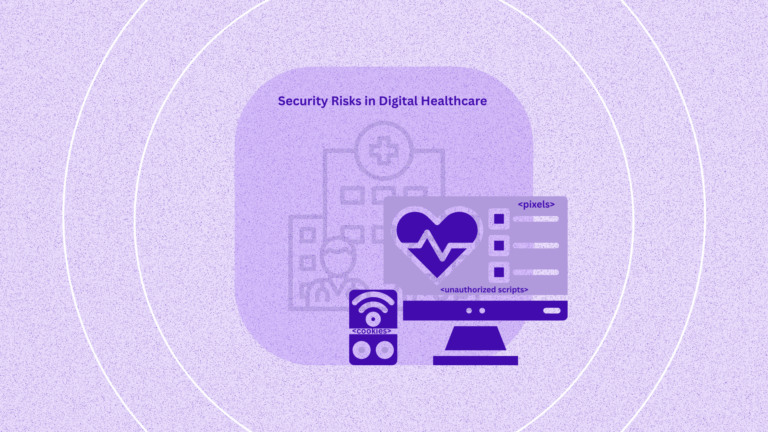Summary
- The HITECH Act was enacted in 2009 to promote the adoption of electronic health records (EHRs) and strengthen HIPAA enforcement.
- It expanded privacy and security protections for Protected Health Information (PHI).
- HITECH increased breach reporting requirements and imposed stricter penalties for noncompliance.
- It also introduced the concept of “meaningful use” to incentivize EHR adoption among providers.
- HITECH laid the groundwork for today’s HIPAA audit program and greater digital accountability in healthcare.

What Is the HITECH Act?
The Health Information Technology for Economic and Clinical Health Act (HITECH) is a federal law passed in 2009 as part of the American Recovery and Reinvestment Act (ARRA). It was designed to:
- Accelerate the adoption of electronic health records (EHRs)
- Enhance the enforcement of HIPAA privacy and security rules
- Promote secure health information exchange (HIE)
HITECH recognized that as more health data moved online, stronger security, breach accountability, and regulatory oversight were essential to protect patients.
How Does HITECH Relate to HIPAA?
HITECH is essentially an expansion and enforcement mechanism for HIPAA. While HIPAA created the initial privacy and security framework in 1996, HITECH gave it more teeth.
Key enhancements under HITECH:
- Mandatory breach notification for PHI exposure affecting 500+ individuals
- Increased civil penalties for HIPAA violations—up to $1.9 million per year, per type of violation
- Direct liability for business associates (not just covered entities)
- Audit authority granted to the HHS Office for Civil Rights (OCR)
- Restrictions on sale or disclosure of PHI without authorization
HITECH made it clear: if you handle PHI, you’re accountable—whether you’re a hospital, cloud provider, or digital health startup.

What Is “Meaningful Use” Under HITECH?
HITECH also introduced Meaningful Use, a program that provided financial incentives to healthcare providers for adopting certified EHR systems.
To qualify, providers had to demonstrate that their EHRs were used in ways that improve care quality, efficiency, and patient engagement, such as:
- E-prescribing
- Electronic clinical quality measures
- Patient portal access
- Care coordination tools
While “Meaningful Use” has since evolved into the Promoting Interoperability program under CMS, it was a core part of HITECH’s push to modernize healthcare IT.
Why Does HITECH Matter Today?
HITECH changed the regulatory landscape in ways that still impact healthcare organizations today:
- It laid the foundation for today’s HIPAA Breach Notification Rule
- It expanded the scope of enforcement to business associates and third-party vendors
- It enabled the OCR audit program, which reviews HIPAA compliance across sectors
- It heightened the need for client-side security as more PHI flows through digital forms, portals, and tracking tools
Modern compliance challenges—like online tracking technologies, CDNs, and third-party JavaScript—are still governed by principles set forth in HITECH.
FAQ
What’s the difference between HIPAA and HITECH?
HIPAA is the foundational law for protecting PHI. HITECH is a supplemental law that strengthens HIPAA, especially around enforcement, digital records, and breach reporting.
Does HITECH apply to business associates?
Yes. Under HITECH, business associates are directly liable for HIPAA compliance. This includes cloud platforms, analytics vendors, and other third parties that handle PHI.
How does HITECH affect digital health apps?
If the app handles PHI on behalf of a covered entity—or collects identifiable health data—it may fall under HITECH-enhanced HIPAA rules, especially if a breach occurs.
Conclusion
The HITECH Act modernized HIPAA for the digital era—mandating stronger protections for electronic health records, expanding breach accountability, and enforcing compliance across the healthcare supply chain.
Today, organizations must:
- Secure both server-side and client-side systems handling PHI
- Treat vendors and cloud platforms as business associates under HITECH
- Report breaches involving PHI within HITECH’s notification timeline
- Maintain audit-ready records of HIPAA compliance practices
HITECH isn’t just about policy—it’s about building trustworthy digital infrastructure in healthcare.


